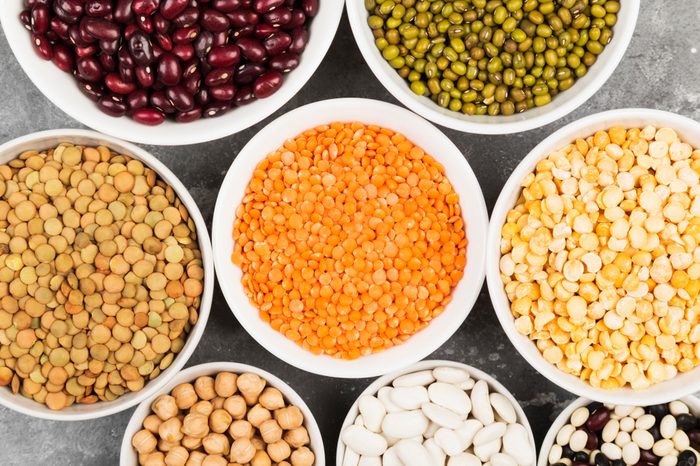
Health Benefit: Beans can prevent heart disease
Studies have shown that people who eat more legumes have a lower risk of heart disease, and the phytochemicals found in beans might be partially to thank since they protect against it. A 2017 review of medical studies in the journal BioMed Research International found that high legume intakes are associated with a lower risk of premature death—and in particular cardiovascular disease-related death.
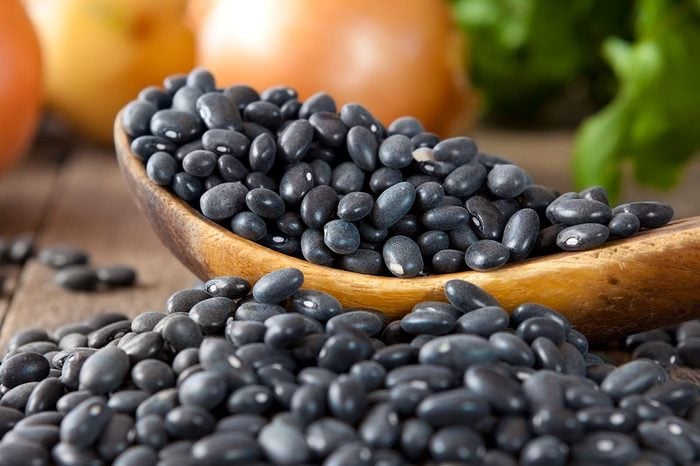
Health Benefit: Beans can fight cancer
Beans contain a wide range of cancer-fighting plant chemicals, specifically, isoflavones and phytosterols, according to the American Chemical Society, and all can help reduce cancer risk. (Doctors don’t eat these cancer-causing foods.)
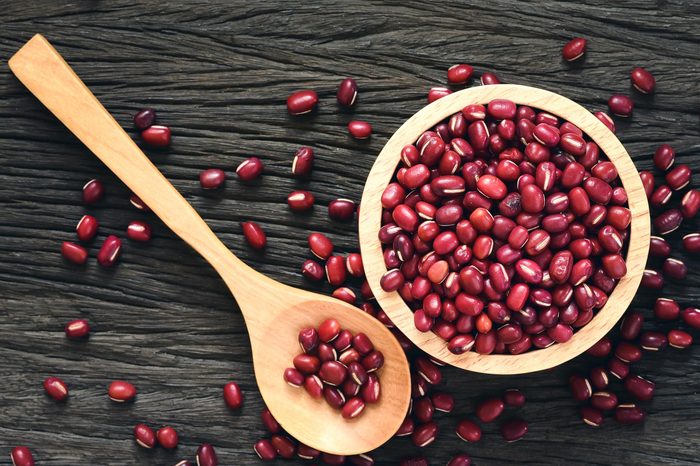
Health Benefit: Beans can lower cholesterol
Beans provide the body with soluble fiber, which plays an important role in controlling blood cholesterol levels. The U.S. Department of Health and Human Resources says that 5 to 10 grams of soluble fiber a day—the amount in 1/2 to 1 1/2 cups of navy beans—reduces LDL cholesterol by about 3 to 5 percent. Beans also contain saponins and phytosterols, which help lower cholesterol.
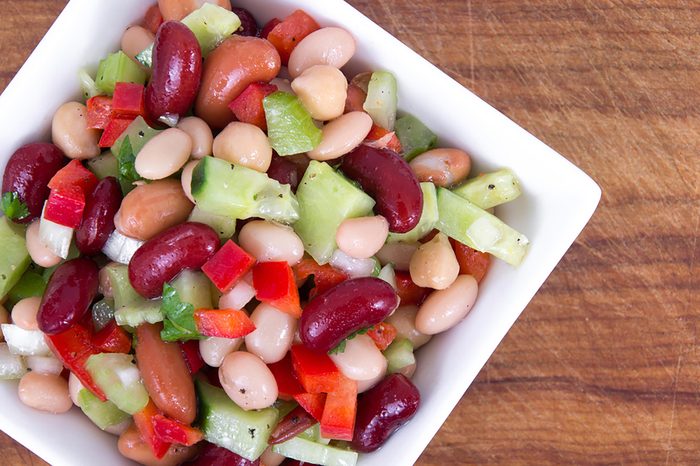
Health Benefit: Beans can help you lose weight
A serving of beans will help you feel full more quickly because the rich fiber content fills your stomach and causes a slower rise in blood sugar, according to a 2016 study in Experimental and Therapeutic Medicine. That should stave off hunger longer and give you a steady supply of energy.
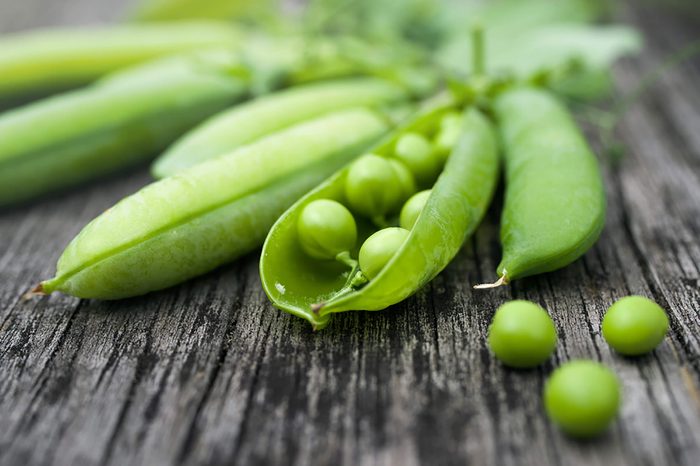
Health Benefit: Beans can help manage diabetes
Beans are a superfood for people living with diabetes! The balance of complex carbohydrates and protein provides a slow, steady source of glucose instead of the sudden surge that can occur after eating simple carbohydrates, research has found.
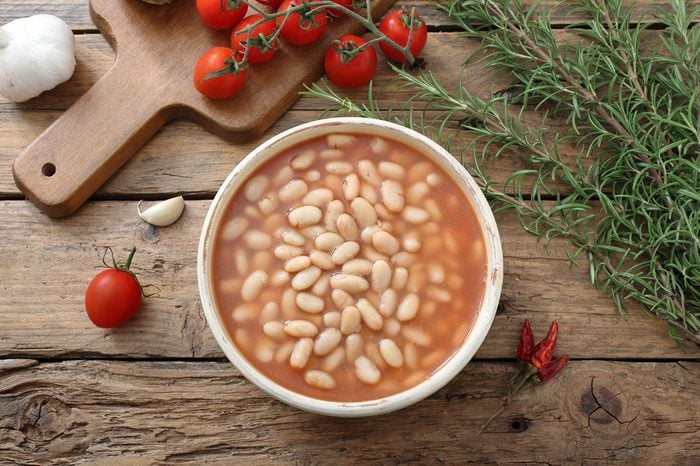
Health Risk: Beans can cause migraines
Some beans and legumes contain a substance called tyramine It can trigger migraines, according to the National Headache Foundation. These foods may also cause an allergic reaction in some people. Peanut is the most common legume allergy, reports FARE (Food Allergy, Research & Education). If this happens, talk to a doctor and eliminate the culprit from your diet.
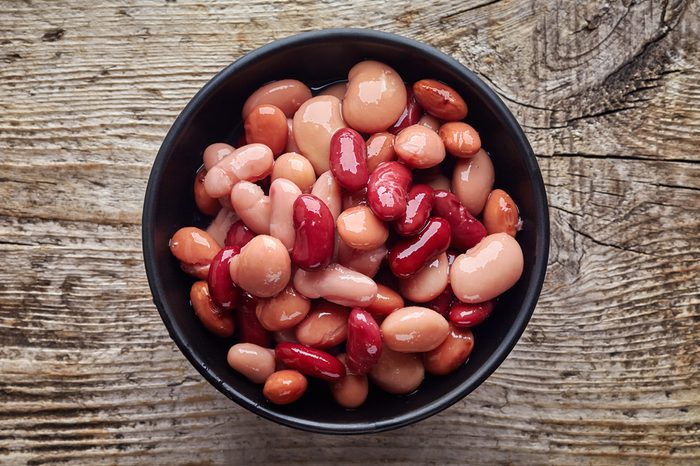
Health Risk: Beans can raise blood pressure
If you take a monoamine oxidase (MAO) inhibitor to treat depression, avoid fava beans because they can interact with your medication and raise blood pressure, according to the National Headache Foundation. MAO inhibitors are one of the 12 medicines you should never mix with alcohol.
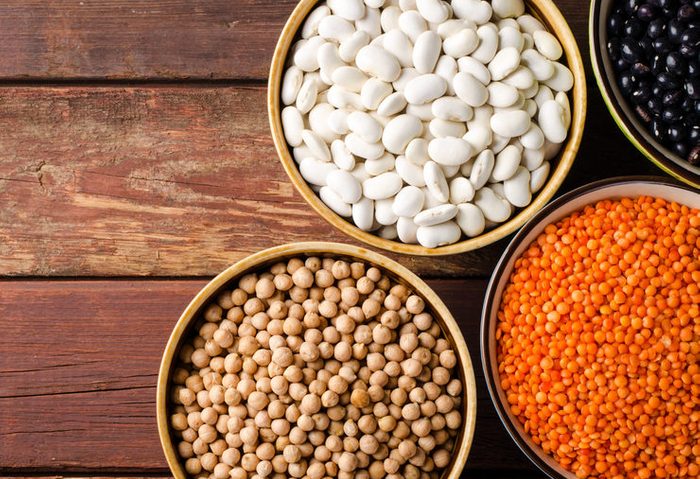
Health Risk: Beans can interfere with vitamin absorption
Some beans, like soybeans, contain substances that interfere with the absorption of beta carotene and vitamins B12 and D, according to an older study from the U.S. Department of Agriculture. The heat from cooking inactivates most of these substances, making vitamin absorption more likely. However, it’s still smart to compensate for potential vitamin loss by consuming plenty of fresh fruits and yellow or dark green veggies (to up your beta carotene) and lean meat (for vitamin B12).
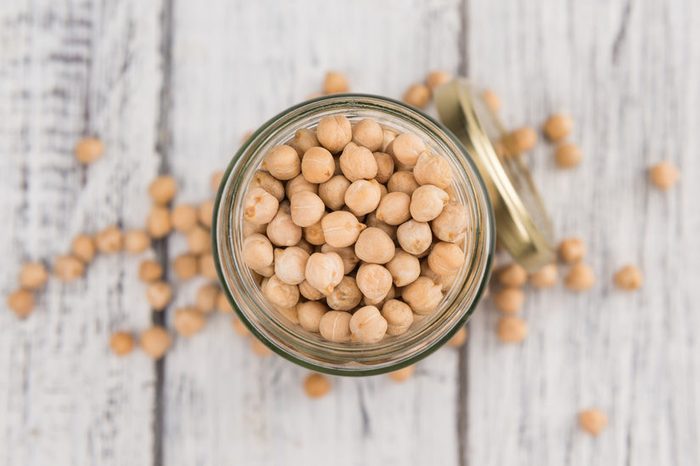
Health Risk: Beans can trigger gout
If you suffer from gout, talk to your doctor about your bean consumption. People with gout are often advised to forgo dried peas, beans, lentils, and other legumes because of their high purine content, according to a 2014 study in Biological and Pharmaceutical Bulletin. In susceptible people, purines increase levels of uric acid and can precipitate a gout attack. Read one person’s account of what it’s like to live with gout.
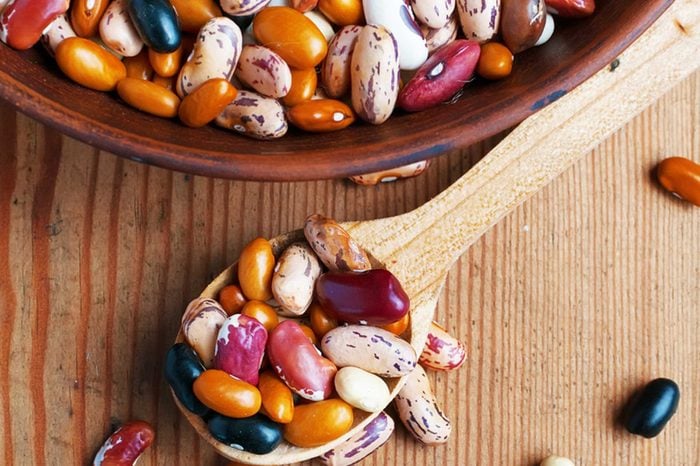
Health Risk: Beans can make you gassy
While not technically a health risk, beans can cause an embarrassing flatulence problem, particularly dried beans, lentils, and peas. As your body breaks down the natural sugars in the food, gas builds up, explain experts at the Cleveland Clinic. Help reduce gas production by changing the water several times during the soaking and cooking process, and always rinse canned beans. Adding herbs like lemon balm, fennel, and caraway, or combining cooked legumes with acidic food, might also help prevent flatulence. It’s worth it—here are even more way beans can help you shed pounds.